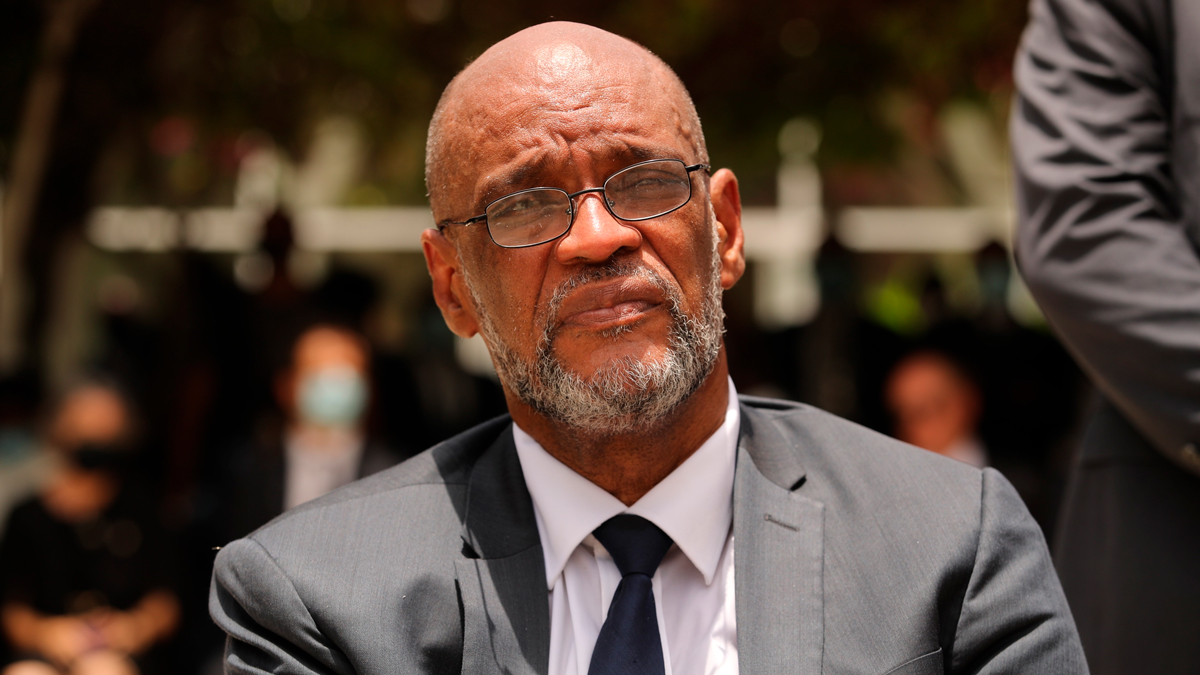Rapid City Journal. April 23, 2022.
Editorial: Racism is beyond unpopular
As Rapid City leaders and Native American groups prepare to meet to work on ways to bridge the city’s racial divide, some people and groups are more interested in diminishing and excusing the blatantly racist comments that blew the lid off of a problem that had been simmering for years.
A leader of South Dakota Citizens for Liberty seems to believe the First Amendment applies to her and those who share her views, but not to the thousands of Native Americans impacted by racist comments from business owners in Rapid City.
Get Philly local news, weather forecasts, sports and entertainment stories to your inbox. Sign up for NBC Philadelphia newsletters.
The Journal published a letter to the editor from Tonchi Weaver, a lobbyist and organizer for South Dakota Citizens for Liberty, where she categorized racist comments from members of the Uhre family as “unpopular speech.” Connie Uhre caused a firestorm when she said she was going to ban all Native Americans from the Grand Gateway Hotel because she can’t tell a “Good Native” from a “Bad Native” following a fatal shooting at the hotel.
Her son, Nick Uhre, defended his mother’s comments and then also went on a tirade of several emails filled with racially-charged statements against Native Americans — including one addressed to Gov. Kristi Noem where he begged the governor for help.
Nick Uhre made a presentation to South Dakota Citizens for Liberty before his mother’s inexcusable comments. According to materials presented at that meeting, he blamed rising crime rates on police inaction, a law enforcement grant from a charitable organization, and again blamed Native Americans.
U.S. & World
Stories that affect your life across the U.S. and around the world.
As a result of the racist comments, the Native American community and right-minded Rapid City allies took a stand against the Uhre family and their multiple businesses in the area. One organization, NDN Collective, announced a formal boycott of the Uhre family’s businesses and used their First Amendment right to peaceably assemble in front of the Foothills Inn to demonstrate that racism will not be tolerated.
Instead of standing against racism, Weaver used her First Amendment right to defend the Uhre family’s “right to engage in commerce” and referred to the racist comments as merely “unpopular speech.” She demonized NDN Collective’s action as racketeering and warned that a “shakedown of the entire business community is coming, too.”
The Journal published Weaver’s letter to show that many in the community refuse to condemn the racism that persists in some corners of the Black Hills. The letter also shows that Weaver is loyal to the Uhre family.
Being loyal to a friend is admirable. But when your friend says and does racist things, it isn’t loyalty — it’s complicity.
And it isn’t admirable, it’s deplorable.
We look forward to the day when people with a right to free speech don’t use that right to express or condone racism.
___
Yankton Press & Dakotan. April 25, 2022.
Editorial: Amendment C And What It Really Does
South Dakota Chamber of Commerce President Dave Owen was in Yankton last week mainly to give his postmortem on the recently completed legislative session, but he also took aim at an issue that will be before voters — that is, ALL voters — in the June primary.
He discussed Amendment C, a proposed constitutional amendment that would require all constitutional amendments or initiated measures that increase taxes or appropriate $10 million or more to garner at least 60% of the vote to pass. Currently, a simple majority is needed.
Owen, who has been part of a lawsuit against Amendment C, said the proposed amendment is an attempt to make it even more difficult for South Dakota voters to expand Medicaid this November with Amendment D.
“We have been complaining since last year’s session — meaning the 2021 session — about how they put that on the June ballot,” Owen said. “It’s not right and it’s not fair.”
Critics say Amendment C is on the June ballot because there are typically fewer voters participating in the primary election, and its proponents want it in place before Amendment D comes before voters in the fall.
In fact, critics aren’t the only ones saying this. State Senate President Pro Tempore Lee Schoenbeck, an Amendment C supporter, has publicly stated he wants the new rule on the books to make Medicaid expansion even more difficult.
“You know what? It doesn’t matter what ballot it’s on. It’s on the primary so we can get it in place as soon as possible, because (special interest groups) are pushing a welfare program on the November ballot. And you want this to apply to that vote as well,” he told Dakota News Now.
You don’t see that in Amendment C’s campaign literature. Instead, the proposed amendment is cast as being a way to fight higher taxes as well as a means to tamp down inflation and resist special interest groups.
But in fact, Amendment C looks like an attempt to game the system:
• It does indeed aim to place an even greater obstacle in front of the Medicaid expansion measure. Amendment D might well pass on a simple majority vote, but a 60% threshold would be much more difficult;
• Thus, in a broader scheme, it undercuts the principle of majority rule. If 59% of the people support a measure that meets the criteria of the amendment, it still fails. It empowers the minority to dictate to the majority;
• It’s designed to make it more difficult for people outside of the government apparatus to initiate a measure and have a direct influence on state laws and policies;
• According to Owen, Amendment C also defies the reasoning that derailed the measure approved by voters in 2020 to legalize recreational marijuana, among other things. Ultimately, the Supreme Court decided it violated the rule that such a measure could only be about one topic. Meanwhile, Owen argues that Amendment C addresses taxes and other spending, which is at the heart of the current lawsuit.
Amendment C will be packaged and marketed as many things in the next several weeks, but what it’s really doing is asking the public to surrender some of its power to initiate laws and create change. It proposes that a minority knows better than the majority on certain issues and that lawmakers know better than the public most of the time. It won’t be stated that way, but that would be the result.
END



